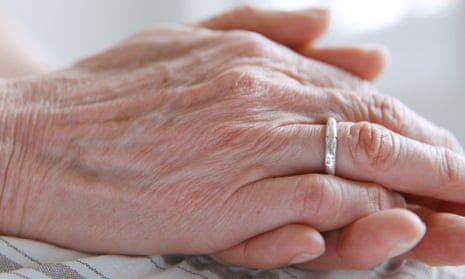Informal mental health carers are contributing $13.2bn annually by caring for people with mental illness – 1.7 times more than Australian governments invest in mental health services each year, a report from the University of Queensland has found.
The report, The Economic Value of Informal Mental Health Caring in Australia, was commissioned by community mental health service provider Mind Australia and will be launched at Parliament House in Canberra on Thursday.
Researchers from the university’s school of public health collected data on the number of informal mental health carers in Australia, and the total hours of care provided by them. They then used national award wage rates to determine the cost to replace this care with formal services.
The total annual replacement cost for all informal mental health carers in 2015 would have been $14.3bn, they found. After adjusting for the $1.1bn offset in Centrelink payments, the researchers determined it would cost governments $13.2bn to offset the unpaid informal care provided by the friends and families of people with a mental illness.
It is the first time an economic value has been placed on informal mental health care in Australia.
“The intention is never for government to completely replace the care provided by mental health carers,” the report said. “Rather, a replacement cost analysis is a method used to quantify the economic value of informal care, and in turn highlight the importance of carers.”
The report also found the majority of mental health carers are women (54.4%) and that most of these women are of working age. Of primary mental health carers, such as a spouse, 40% provide 40 hours or more hours of care on average each week.
A national mental health commissioner, Prof Ian Hickie, said mental health care remained “one of the greatest unrecognised contributions in the health area”. “We must grow the community support services available to people because we rely on families and friends to provide great majority of support outside of hospitals,” Hickie said.
“They require support, training and backup services and they require respite, and increasingly we take their care and contribution for granted. When governments retreat, it is families who are left to provide support.
The executive officer of Mental Health Carers Australia, Jenny Branton, said she was concerned that once some of the government-funded support mental health carers did receive was incorporated into the national disability insurance scheme, mental health carers may no longer be eligible for that support under NDIS guidelines.
She wants reassurance from the government that there won’t be a shortfall once the scheme takes effect and that if there was, it would not be absorbed by informal carers and their families. “It is quite unclear what will be in the NDIS for mental health carers,” Branton said.
“We know the NDIS has enormous potential for those eligible, but we are quite worried for those who aren’t eligible and their carers.”
Informal mental health carers provided substantial emotional support to their loved ones on top of practical support, said the chief executive of Mind Australia, Dr Gerry Naughtin.
“There is a particular level of emotional stress that carers experience,” Naughtin said. “There are a significant numbers of carers, and in particular women, who would like to move into workforce but are unable to due to the caring they provide. The impact is not only emotional distress, but stressed financial circumstances.”
Last week the federal health minister Greg Hunt and the prime minister Malcolm Turnbull met with eminent psychiatrist Prof Pat McGorry and other mental health leaders to discuss mental health as a significant issue of national importance.
“Mental health is a deep personal passion and is one of the four pillars of our long-term National Health Plan,” Hunt told Guardian Australia.
“I’m very conscious of the fact that people of all ages can be affected by mental health problems and we need to have a range of different resources and services to provide help to those that need it.”

Comments (…)
Sign in or create your Guardian account to join the discussion